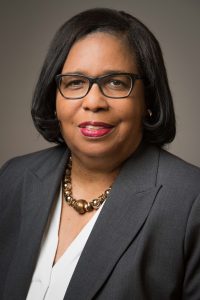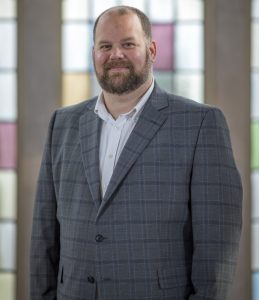The recent reorganization of the Office of Academic, Faculty and Student Affairs at UTHSC will enhance the university’s internal and external efforts.
Lori Gonzalez, PhD, vice chancellor for Academic, Faculty and Student Affairs, announced the reorganization in late July, dividing the office into two concentrations to improve services to students and to coordinate and grow the university’s outreach in the community.

The Office of Student Affairs and Enrollment Services is now the Office of Enrollment Management. This office includes Admissions, Financial Aid, and Registrar services. Dr. Darrylinn Todd, EdD, will continue to serve as the associate vice chancellor for this office.
Charles Snyder, PhD, recruited to UTHSC in October to direct the university’s Quality Enhancement Plan (QEP), now leads the new Office of Student Affairs and Community Engagement and will serve as UTHSC’s Chief Student Affairs Officer.
This new office will include Student Life, Health Career Programs, Student Conduct, and Health Disparities Education and Community Engagement. It will continue to support the Student Government Executive Committee and other student organizations, provide support to the colleges for commencement, host student events, and manage the Health Career Program.
Dr. Snyder will also lead programming associated with the Quality Enhancement Plan.
Dr. Gonzalez said, this framework will help her office “do a more focused job” in enrollment services and community outreach.
“A lot of opportunities come from any reorganization,” Dr. Snyder said. “Having a large entity broken into two more-focused units that can specialize will enhance services in a way that is both effective and efficient.”
The title and focus of the university’s Quality Enhancement Plan is Community Engaged Care. The QEP is a multiyear commitment designed to enhance students’ ability to recognize and address the social determinants of health.
“We’re going to have a big push on campus to get our students engaged, not only in the community, but engaged on campus in many different ways,” Dr. Gonzalez said.

“Through community engaged care, we’re going to elevate awareness around how the conditions in which people live, work, and play can impact health status,” Dr. Snyder said. “Determinants such as housing insecurity, food insecurity and food deserts, health care access and quality, and social integration are major drivers of health outcomes.”
“We’re going to teach about these social determinants of health, and then we’re going to get our students out in the community to work on problems and projects that address the social determinants of health,” he said.
Dr. Snyder said his office will work not only to increase community engagement, but to coordinate the outreach currently done by the various colleges. A new user-friendly digital platform will make it easier to find and record service, track student participation in activities, and help connect students with others engaged in similar activities and interests.
“It is important we work together,” he said. “We can do more together.”
On August 24, the university plans to participate in a health event to bring services to several hundred Memphians in an underserved area of the city.
“We’re really going to try to concentrate the energy we have as an institution into several well-developed, highly impactful activities,” Dr. Snyder said.
